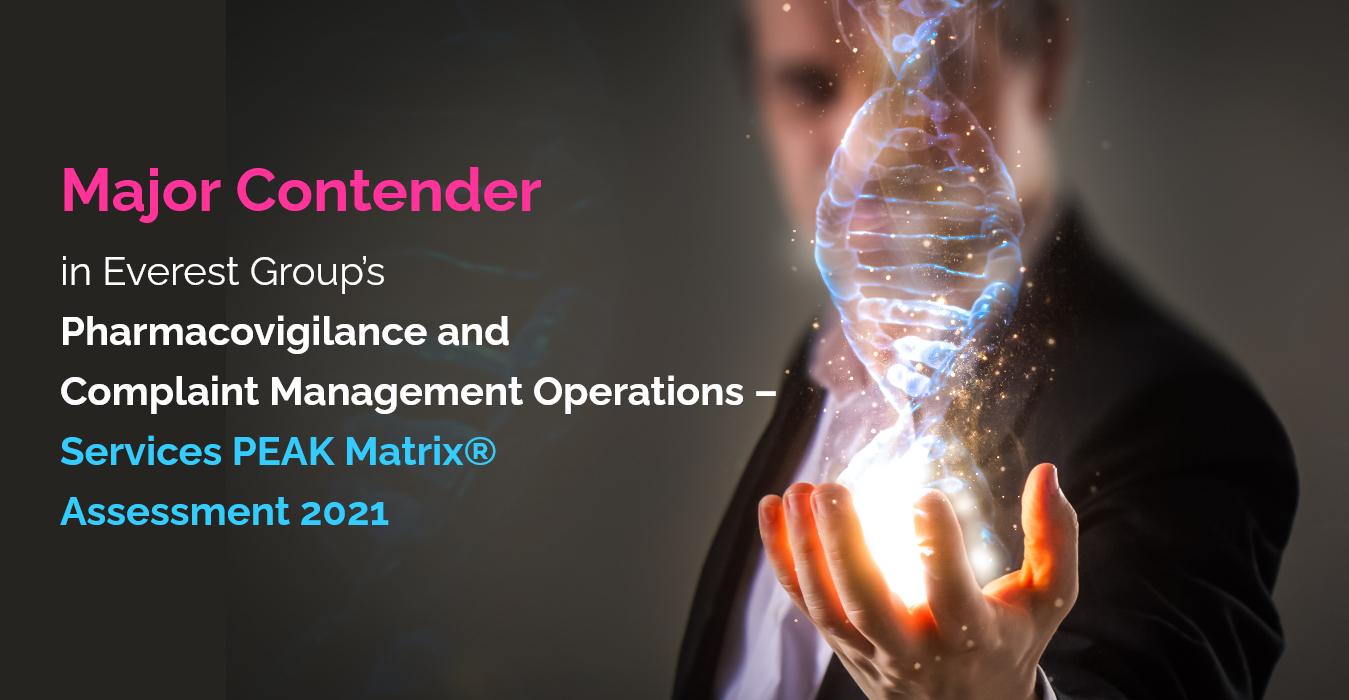Solutions
Advisory Services
Clinical Development
- Generics Development
- Clinical Operations
- Clinical Data Sciences
- Medical and Safety Services
- RWD & RWE Services
Post Marketing
- Safety Services
- Post marketing Studies
- Regulatory Affairs
Patient safety is crucial and a priority for Navitas Life Sciences. Pharmacovigilance (PV) systems are becoming more and more complex in an evolving regulatory environment and in a globally diverse system. As the pharmaceutical industry embraces new technologies and transformative initiatives, there is a necessity to streamline the end-to-end processes.
According to businesswise, by 2028, the global pharmacovigilance market size is estimated to touch USD 14.95 billion, with a 11% Compound Annual Growth Rate (CAGR) from 2021 to 2028. A report by the National Center for Biotechnology Information (NCBI) has stated that nearly 5% of total hospitalizations that occur in Europe are due to Adverse Drug Reactions (ADR). The essence of pharmacovigilance services, therefore, is to support pharmaceutical companies in identifying potential adverse drug reactions during the clinical trial phase.

Dr. Latika Sharma
PV Networks Thought Lead
Navitas Life Sciences
Navitas Life Sciences is a full-service Pharmacovigilance provider, offering Services along the PV Value chain right from Case Intake to Safety Risk Management. Our global team provides a combination of offshore and onshore support capabilities that can reliably serve the entire PV spectrum.

At Navitas Life Sciences we have well established and proven successful internal practices that are easily scalable to meet global needs. To find out what makes pharmacovigilance such an exciting field and to understand its long-standing benefits, we interviewed our PV Networks Thought Lead, Dr. Latika Sharma.
What attracted you to pharmacovigilance (PV)? What path did you take which eventually led you to becoming a Pharmacovigilance expert?
At medical school, the 3 Ps (physiology, pathology, and pharmacology) always fascinated me; how does the body function in normal state? What goes wrong during disease state? How do medicines work? While practicing medicine in a range of healthcare settings (armed forces/civil, primary through tertiary) greatly honed my clinical and patient skills. I was attracted to the concept of clinical research/epidemiology and its potential to positively impact ‘populations’ rather than individual patient, one at a time. My interest in pharmacology, public health and research made PV a great choice for me. I started my PV career as a Manager leading a Medical review team and am currently leading PV networks.
What do pharmacovigilance scientists do? What advice would you give to someone who is thinking about joining the PV team?
PV or drug safety deals refers to early detection, assessment, monitoring, and prevention of adverse effects with medicinal products. This is achieved through a range of processes (single case review, aggregate reports, signal, and risk management) performed by scientists and physicians.
New entrants into this field should be mindful of a few things:
How does pharmacovigilance help the broader aspect of improving healthcare? What is the impact of COVID-19 on Pharmacovigilance?
Side effects to medicinal products are quite common; studies have shown that despite many adverse drug reactions being preventable, they do cause significant morbidity and mortality. This is a potential public health issue, particularly in economies where sale of medicines is less regulated, health literacy is sub-optimal, polypharmacy is rampant, and index of suspicion for adverse drug reactions is very low among HCPs. Over the past two decades, the efforts of international PV bodies, for example: the International Council for Harmonization of Technical Requirements for Human Use (ICH), the World Health Organization (WHO), Council for International Organizations of Medical Sciences (CIOMS), etc. as well as global regulators (including US Food and Drug Administration (FDA) and European Medicines Agency (EMA)) have shown great results. Drug safety is now an established and better regulated practice in many more parts of the world.
COVID-19 has further propelled PV, particularly vaccinovigilance into the spotlight. Existing medicines have been repurposed (for example: Ivermectin, Remedesvir, HCQ, etc.) and vaccines developed and rolled out across the globe in record time. Social media has helped raise both awareness and expectations from PV among people. Worldwide, drug safety organizations and regulators are round the clock monitoring the safety and efficacy of these products.
What are the Pharmacovigilance trends to look out for?
Even as regulations become more complex, workload rises and budget constraints remain, the role of Pharmacovigilance continues to expand beyond the traditional safety operations paradigm. Patient safety is now more comprehensive. It includes benefits as well as risk, has a wider stakeholder base in practice and is embracing ‘patient centricity’ to the letter and spirit. With availability of real-world data and technologies like Artificial Intelligence (AI), PV is better poised to help bring safe and efficacious therapies (public and personalized), both globally and expeditiously.

Tell us more about pvnet® and its strategic influence on the experts in the field.
Established in 2001, pvnet® provides a neutral platform for PV leaders to network, debate, benchmark performance, and share best practices on contemporary issues. It equips leaders to shape the future of Patient Safety with shared values of ethics, efficiency, and empathy. In the new order of PV, collaboration without borders becomes imperative, our pvnet® community provides a platform from which organizations can co-innovate and design future proof PV ecosystems.
Join our subject matter expert, Dr. Latika Sharma, PV Networks Lead at Navitas Life Sciences for our live webinar Shifting Sands of Pharmacovigilance – Pivot, Maneuver, Breakout as she explores the following key themes:
Date: 11th August, 2021
Time: 11:00 am – 12:00 pm EST
To learn more about our PV services and solutions, and how you can leverage our insights to drive outcomes to ensure compliance and safety in your organization reach out to us at